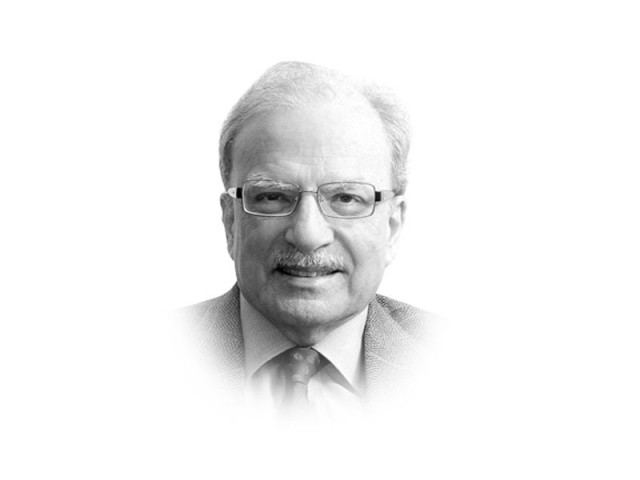The US contagion – from Trump to Modi
Both Trump and Modi are disturbing the established political and economic orders

The writer is a former caretaker finance minister
and served as Vice-President at the World Bank
The BJP’s election campaign was led by Narendra Modi, the Indian prime minister. There is no doubt that Modi drew a number of lessons from the Trump phenomenon. The most important of these is that the people all across the world feel extremely unsettled by what is happening to them and to the environments in which they live. What is generally referred to as the process of globalisation resulted in sharp improvements in worker productivity which, in turn, quickened the pace of economic growth. It also produced income inequalities. Perceptions about the causes of inequality were different between the people in developed countries and emerging nations. Those who were left behind in the West — in the United States and in Europe — blamed their situation on job losses caused by international trade. Those who lived in poor countries blamed the governments for not helping them. Since those who feel deprived constitute a significant proportion of the voting population — about 30 per cent in the United States and 60 per cent in India — their grievances need to be addressed by the people they elect.
There is a growing belief that only strong leaders can orchestrate and implement the needed change. The World Values Survey found that between the mid-1990s and the early part of this decade, 25 of 30 countries that responded to its survey in both time periods saw a significant increase in the number of people and their proportion in the population who agreed that having a strong leader who does not have to bother with the constraints imposed by legislatures. Parliament or elections would be good for their country.
According to Ruchir Sharma, the chief global strategist at Morgan Stanley Investment Management, “In India, support for this proposition spiked to 70 per cent from 44 per cent, the highest level after Ukraine. India also ranked near the bottom in popular support for private enterprise, alongside former Communist bloc nations like Russia and Ukraine.” But what should the strong leaders do in case they are handed the reins of power? Citizens in developed and developing countries gave different answers to this question.
In the United States, the Trump supporter wanted the country pulled out of multilateral trade arrangements such as the Trans-Pacific Partnership Agreement and the North America Free Trade Area. Both were seen as cutting into America’s sovereignty. By raising the slogan of “America First,” Donald Trump gave a clear signal that his administration had little interest in working within multi-country frameworks. Narendra Modi read his country’s mood differently and in responding to it, he made a 180 degrees turn in his policy preferences. He had won the 2014 election by promising “minimum government, maximum governance.” The private sector was to be given a lot of space and the government and its regulatory systems would be streamlined so that there was little interference. He talked about bringing foreign capital in the form of investments by large multinational enterprises by giving them tax incentives. Alleviating poverty and reducing income inequality were not high on the agenda. That has all changed. Once again quoting from the Sharma article, now Modi talks “only of helping the poor, providing loan waivers to farmers, giving out free cylinders of gas and cleansing the system of corruption and the streets of filth.”
Trump, on the other hand, has shown little interest in helping the poor. While the disadvantaged put him in power, his inclination is to help the rich gain even more. The approach to the health system that took shape during the Obama presidency is to put in place that will help the poor and punish the poor.
Both Trump and Modi are nationalists, interested in advancing their own citizenry and not concerned about the world that begins at their borders. It is of no interest to them that what they do at home could alienate their neighbours. Trump has already disturbed the Mexicans; Modi has adopted a highly aggressive approach towards Pakistan, India’s long-estranged neighbour. Like Trump, Modi seems not be interested in forging regional associations. He, too, believes in “India First.”
Both Trump and Modi are disturbing the established political and economic orders. Given the size of these two countries the public policy approaches adopted will have global consequences.
Published in The Express Tribune, March 20th, 2017.
Like Opinion & Editorial on Facebook, follow @ETOpEd on Twitter to receive all updates on all our daily pieces.















COMMENTS
Comments are moderated and generally will be posted if they are on-topic and not abusive.
For more information, please see our Comments FAQ